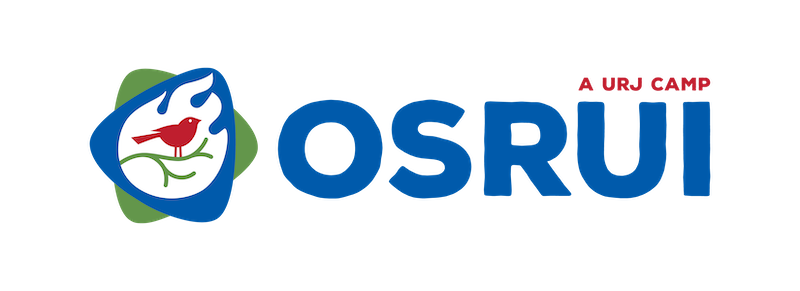Moshavah, July 1, 2016
We watched the sun rise above the horizon as we sang Yotzer Or blessing. “Blessed are You G-d, Creator of light.” We sang the blessing in Hebrew as we stood in a circle at our campsite. It was the first morning of our first Moshavah tiyul [trip].
In Moshavah, chanichim [campers] get to choose to go on hiking, biking, canoeing or rock climbing tiyulim. I had the opportunity to go on a hiking trip with 8 eighth grade girls and 2 incredibly knowledgeable and passionate madrichim [counselors]. It always amazes me how Judaism comes alive in nature. All of a sudden we were not just singing about the sun rising each morning, but we were witnessing and marking the moment as sacred with a blessing.
Earlier in the week, campers learned about the T’fillat HaDerech, the Traveller’s Prayer. After sitting with the prayer and discussing with other chanichim the relevance in our lives today, each camper wrote their own traveller’s prayer that they could share as they set out on their tiyul. “Please keep us safe from wild animals.” “I pray that we stay healthy and come back in one piece.” “May we remember to look up and enjoy the view.”
Madrichim led the way through beautiful Wisconsin trails and state parks. As we hiked, we sang songs and shouted out our Mosh cheers. Campers were in great spirits! We definitely enjoyed the journey, and at the same time, each rest stop was a new goal, and when reached, chanichim felt even more accomplished and connected to one another. Plus, there was always an incredible view waiting for us!
Chanichim in Mosh learn incredible outdoor skills; from how to pitch a tent, to cooking at the campfire (yum!). In addition, chanichim learn how to take care of the environment. As one of our cheers exclaims,
“M-O-S-H, Moshavah is the place! M-O-S-H, Moshavah- leave no trace!”
“Leave no trace” is a concept that teaches the importance of protecting the environment and keeping it clean so that future generations can enjoy the beauty we experience today. We carried all of our food with us in our big backpacks, and any waste we produced, we packed out and brought with us on the rest of our trip.
A particularly special moment on our hiking trip was the opportunity for each person to spend a little time with themselves in nature. Campers were invited to find their own space in the trees and the grass to reflect. Rabbi Nachman’s prayer for being alone in nature was the perfect introduction, and just one of the many ways that we infuse Jewish texts into the lives of our chanichim out on tiyulim.
“Grant me the ability to be alone;
May it be my custom to go outdoors each day
Among the trees and grass, among all growing things
And there may I be alone, and enter into prayer,
To talk with the One to whom I belong…”
Each night ended with chanichim sharing something that was new, challenging or surprising for them. Then, looking up at the stars, we sang Hashkiveinu, “G-d, keep us safe throughout the night, till we wake with morning’s light…” And finally the words of Sh’ma.
The beauty of camp is that campers rarely just learn about a topic, but rather learn by experiencing it. A Mosh favorite is to appreciate the teva [nature] at camp by using the line of morning liturgy that states, “How wondrous are Your works Oh G-d!” In Hebrew, “Mah rabu ma’asecha Adonai!” This ability to pause, appreciate, and show gratitude is now so engrained in the chanichim, that as we hiked, unprompted by the adults, one of the chanichim pointed out a gorgeous view and suggested that we have a “Mah Rabu” moment. At the top of our lungs, we all counted off, “1-2-3- Mah rabu ma’asecha Adonai! How wondrous are Your works Oh G-d!”
Cantor Rayna D. Green is a cantor at Congregation B’nai Jehoshua Beth Elohim in Deerfield and Mosh staff



